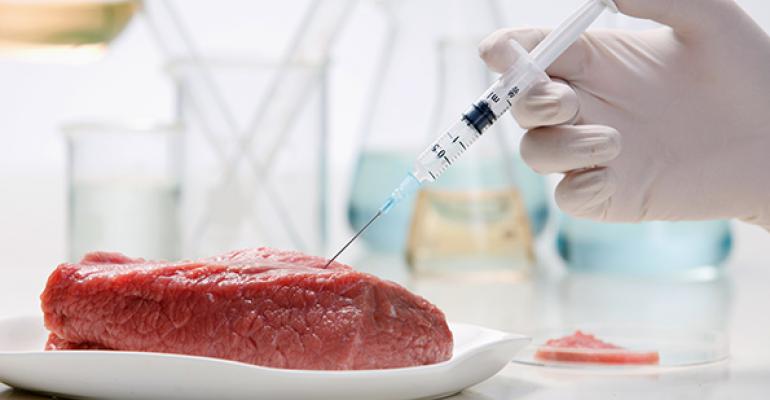A coalition of consumer, health and environmental groups this week said the restaurant industry is not doing enough to reduce the use of antibiotics in meat production despite consumer demand and major public health concerns.
Those groups, which include the Natural Resources Defense Council, Consumer Reports publisher Consumers Union and dozens of other groups, have stepped up pressure on the industry to get more aggressive in reducing the use of antibiotics to promote growth in meat and poultry.
The use of such antibiotics, they say, is contributing to a growing problem of antibiotic-resistant bacteria, a major public health threat.
“Nearly half of the money Americans devote to food is spent on meals outside the home, giving large restaurant chains substantial influence over the meat we eat and how it is produced,” according to a report produced by the groups and released earlier this week.
“Most top U.S. chains restaurants … have so far failed to effectively respond to this growing public health threat by publicly adopting policies restricting routine antibiotic use by their meat suppliers.”
More than 100 health, consumer and environmental groups sent a letter this week to restaurant chain CEOs, urging them to take more aggressive action to require suppliers to cut back on antibiotic use.
The groups are calling on the CEOs to publicly adopt policies that prohibit the use of medically important antibiotics to promote the growth of meat or poultry.
They are also asking the CEOs to let suppliers know that meat must meet this standard.
“While we will continue to push lawmakers and regulatory agencies to adopt stronger policies, we believe that your industry can use its significant buying power to help stem this public health crisis by developing strong policies to reduce or eliminate antibiotic use in your meat and poultry supply chains,” the letter says.

The report examined the antibiotics policies at 25 large restaurant chains, and gave all but five of them what the groups consider failing grades.
Chipotle Mexican Grill and Panera Bread received the highest marks as the only two large chains that publicly affirm that most of their meat and poultry is produced without administration of antibiotics.
Chick-fil-A, McDonald’s Corp. and Dunkin’ Donuts also received passing grades for committing to eliminate the use of certain meats produced with antibiotics.
The report uses a combination of surveys with the companies as well as company websites, annual reports and other publicly available information.
The report did give a “shout out” to several smaller chains for their use of antibiotic-free meat, including Carl’s Jr. as well as some fast-casual concepts like Shake Shack and BurgerFi.
The report does single out a pair of chains for making public comments suggesting they would shift their supply chain — but nevertheless gave them failing grades for not adopting a clear policy.
Subway recently said it would switch to chicken raised without antibiotics next year and would work to find antibiotic-free options for all meats. The report gave the chain partial credit for that, but also said the chain’s stated policy is not clear regarding its level of commitment.
Another chain singled out was Starbucks, which the report notes has made “positive statements” regarding the reduction of antibiotics but “to our knowledge the company has failed to adopt a clear policy prohibiting routine use of antibiotics in its meat and poultry supply chains.”
A growing number of restaurant chains have committed to using antibiotic-free poultry, in particular. And some concepts, like Wendy’s, are testing the use of antibiotic-free poultry.
Farmers and ranchers have long used antibiotics, including antibiotics used to treat humans, in chickens and other animals to promote growth. But the practice has come under fire in recent years amid mounting concerns about antibiotic-resistant bacteria.
The report said the use of human antibiotics in animal farming has been linked to antibiotic resistance, citing the Centers for Disease Control and Prevention statistics that 2 million Americans get antibiotic-resistant infections, and 23,000 die every year.
“Overusing antibiotics in meat production helps to create drug-resistant superbugs — our nation’s largest chain restaurants can be part of the problem or part of the solution,” Dr. David Wallinga, senior health officer with the NRDC, said in a statement. “Restaurants billing themselves as a ‘healthier’ option, like Subway, have a particular responsibility to live up to that image by reducing antibiotics. Consumer demand for meat raised without antibiotics is transforming the marketplace. The companies continuing with business-as-usual will be left behind.”
Contact Jonathan Maze at [email protected].
Follow him on Twitter at @jonathanmaze

